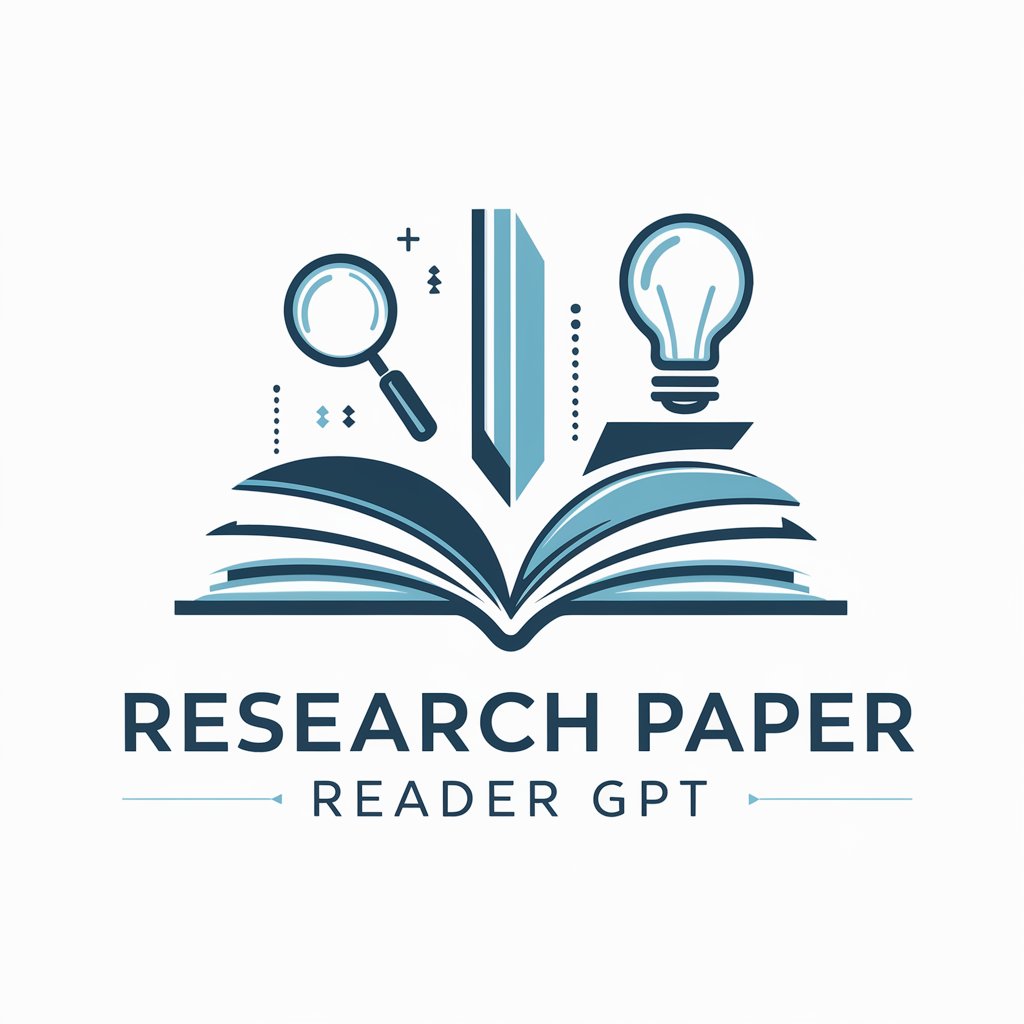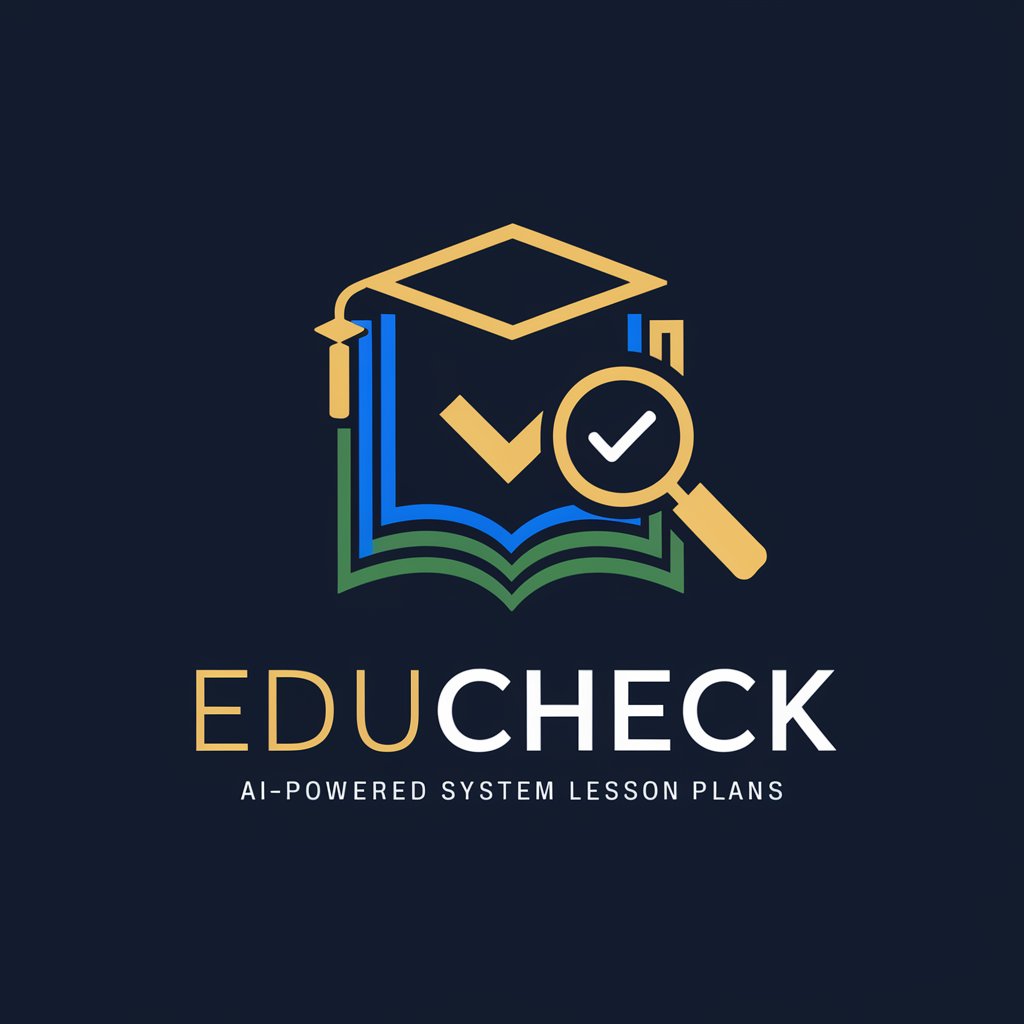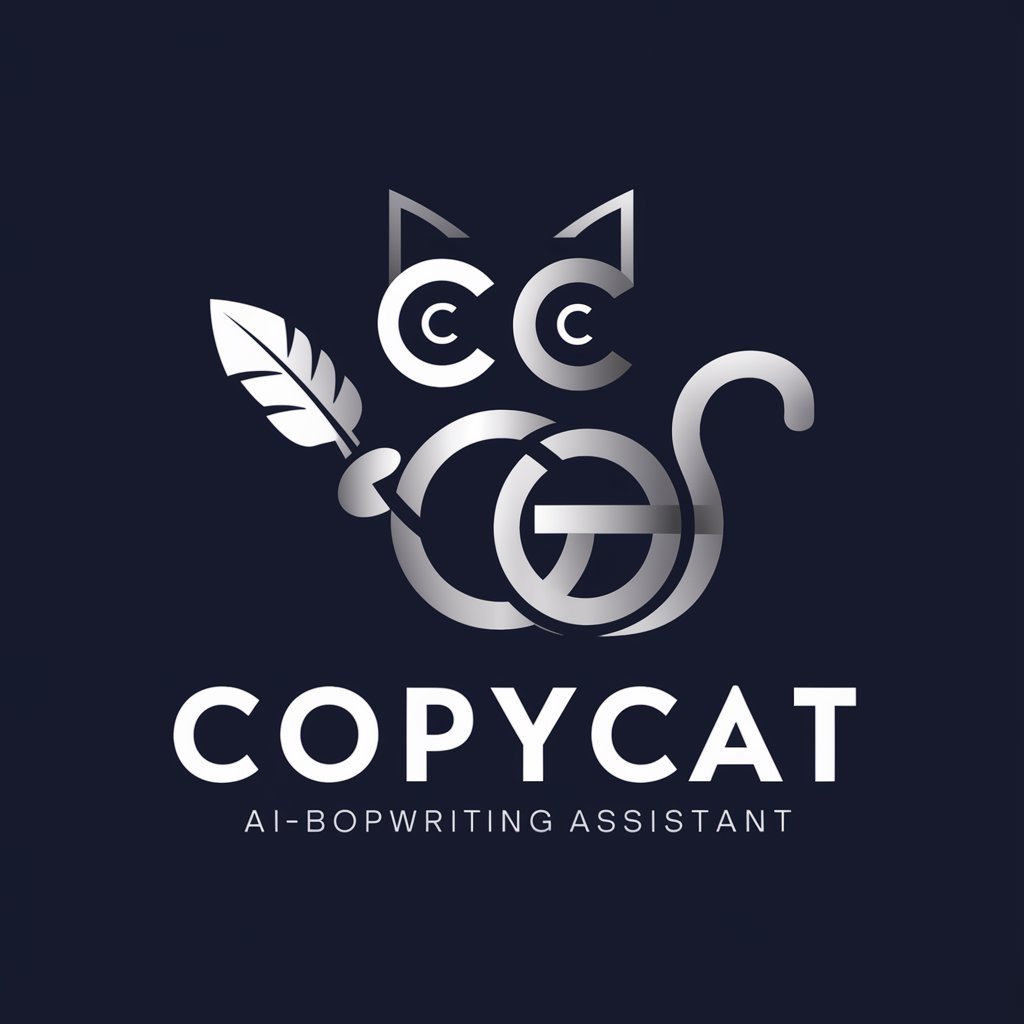
Research Paper Reader - Research Analysis AI

Welcome! How can I assist you with your research today?
Unlocking Insights with AI-Powered Analysis
Provide an overview of this research paper, focusing on its main arguments, methodology, and conclusions.
Analyze the context of this research paper. What are its related works and theoretical underpinnings?
Detail the methodology used in this paper. How were the experiments or studies conducted?
Provide insights on how the findings of this paper can be applied in an industry context.
Get Embed Code
Introduction to Research Paper Reader
Research Paper Reader is designed as a specialized GPT model to serve as a personal research assistant, focused on providing simplified yet thorough explanations of complex research papers. This tool is engineered to guide users through the intricate aspects of research papers, including their methodology, implications, and key takeaways. It aids in categorizing the type of research, linking to related works, assessing the correctness of the research, identifying the main contributions, evaluating the clarity, and offering insights for practical application. An example scenario could be a user struggling to grasp the complex statistical methods used in a paper on neurobiology. The Research Paper Reader would break down the methodology in layman's terms, outline the implications of the findings, and suggest further reading to enhance understanding. Powered by ChatGPT-4o。

Main Functions of Research Paper Reader
Category Analysis
Example
Determining a paper as a measurement study or a prototype description.
Scenario
A user uploads a paper on a new AI algorithm. The Research Paper Reader identifies it as a research prototype description, helping the user understand the focus is on presenting a new model rather than analyzing existing ones.
Contextual Linking
Example
Identifying and linking to related research works and theoretical foundations.
Scenario
In reviewing a paper on renewable energy, the tool provides context by linking to foundational research on solar technology and recent studies on energy storage solutions.
Correctness Assessment
Example
Critically assessing the validity of the paper’s assumptions.
Scenario
A user queries a paper on climate change effects. The tool critiques the assumptions made about emission scenarios, suggesting a more nuanced interpretation might be necessary.
Contribution Identification
Example
Summarizing the paper's main contributions to its field.
Scenario
For a paper introducing a novel machine learning technique, the tool outlines its innovative approach to data analysis, its effectiveness compared to existing methods, and its potential applications.
Clarity Evaluation
Example
Analyzing the paper's presentation quality and structure.
Scenario
A user examines a complex genetics research paper. The Research Paper Reader assesses its clarity, noting sections that are well-explained and those needing further clarification.
Ideal Users of Research Paper Reader Services
Graduate Students and Researchers
This group benefits from the tool's ability to demystify complex research findings, making it easier to integrate these findings into their own work or studies. The detailed analysis helps in preparing literature reviews or understanding new fields quickly.
Academic Instructors and Professors
They can use the tool to gather materials for courses or to stay updated on advancements in their field. It aids in identifying key papers for curriculum development and offers a quick way to brief on new research for lectures.
Industry Professionals
Professionals looking to apply the latest scientific findings to practical scenarios can use the tool to sift through academic literature for relevant, actionable insights. It helps translate academic research into industry innovations.
Policy Makers and Analysts
This group benefits from understanding the implications of research on policy and societal issues. The tool can assist in evaluating the scientific basis of policy proposals or in identifying research trends that could influence future regulations.

How to Use Research Paper Reader
Step 1
Begin your experience by visiting a designated website for an initial trial, offering access without the necessity of logging in or subscribing to premium services.
Step 2
Once access is granted, upload or paste the link to the research paper you're interested in analyzing. Ensure that the document is in a compatible format for optimal performance.
Step 3
Utilize the tool's provided hotkeys for targeted inquiries, such as summarizing the paper, conducting contextual analysis, or exploring industry insights directly related to the paper's content.
Step 4
Review the generated insights and summaries. For deeper understanding, leverage the tool to compare and contrast the paper with related works, or to question its clarity and contributions.
Step 5
Apply the insights gained for academic writing, research proposals, or enhancing your understanding of the field. Take advantage of the tool's features to guide further learning and research direction.
Try other advanced and practical GPTs
Chakra Harmony Guide_Mina
Master Your Chakras with Science-Powered Techniques

PolySage Complex Problem Solver
Your AI-Powered Expert Roundtable.

EduCheck
Refining Education with AI

Betblack Giochi Sot Gratis Online
Spin Virtually, Win Big!

Sports Betting Picks & Predictions Hero
Empower Your Bets with AI Insights

⚡ MJ Art Prompt Warlock
Empowering Creativity with AI

Harish Article Project
Crafting Quality Content with AI

OU-GPT
Elevating Ophthalmology with AI

エスペラントGPT辞典
Unlock Esperanto with AI

Lab 31 GPT Workshop
Transforming ideas into AI-powered innovations.

Make Money with AI | by BePrompt - V1.3
Empower your business with AI insights.

CopyCat
Empower Your Writing with AI

Frequently Asked Questions about Research Paper Reader
What types of research papers can Research Paper Reader analyze?
The tool is equipped to handle a broad spectrum of research papers, including but not limited to scientific studies, technical reports, and theoretical analyses across various academic disciplines.
How does Research Paper Reader assist with academic writing?
It provides structured breakdowns of research papers, identifies key contributions, and evaluates the clarity and rigor of the work, enabling users to improve their own writing by example.
Can Research Paper Reader help in identifying research gaps?
Yes, by analyzing and comparing a range of papers in a specific field, it can highlight areas that are under-researched, offering opportunities for novel investigations.
Is Research Paper Reader beneficial for non-academic professionals?
Absolutely. Professionals can use it to stay abreast of developments in their industry, foster innovation, and apply the latest research findings to solve real-world problems.
How does Research Paper Reader ensure the quality of its analysis?
The tool employs advanced algorithms to interpret and synthesize paper content, supported by updates and improvements based on user feedback and the latest AI research.